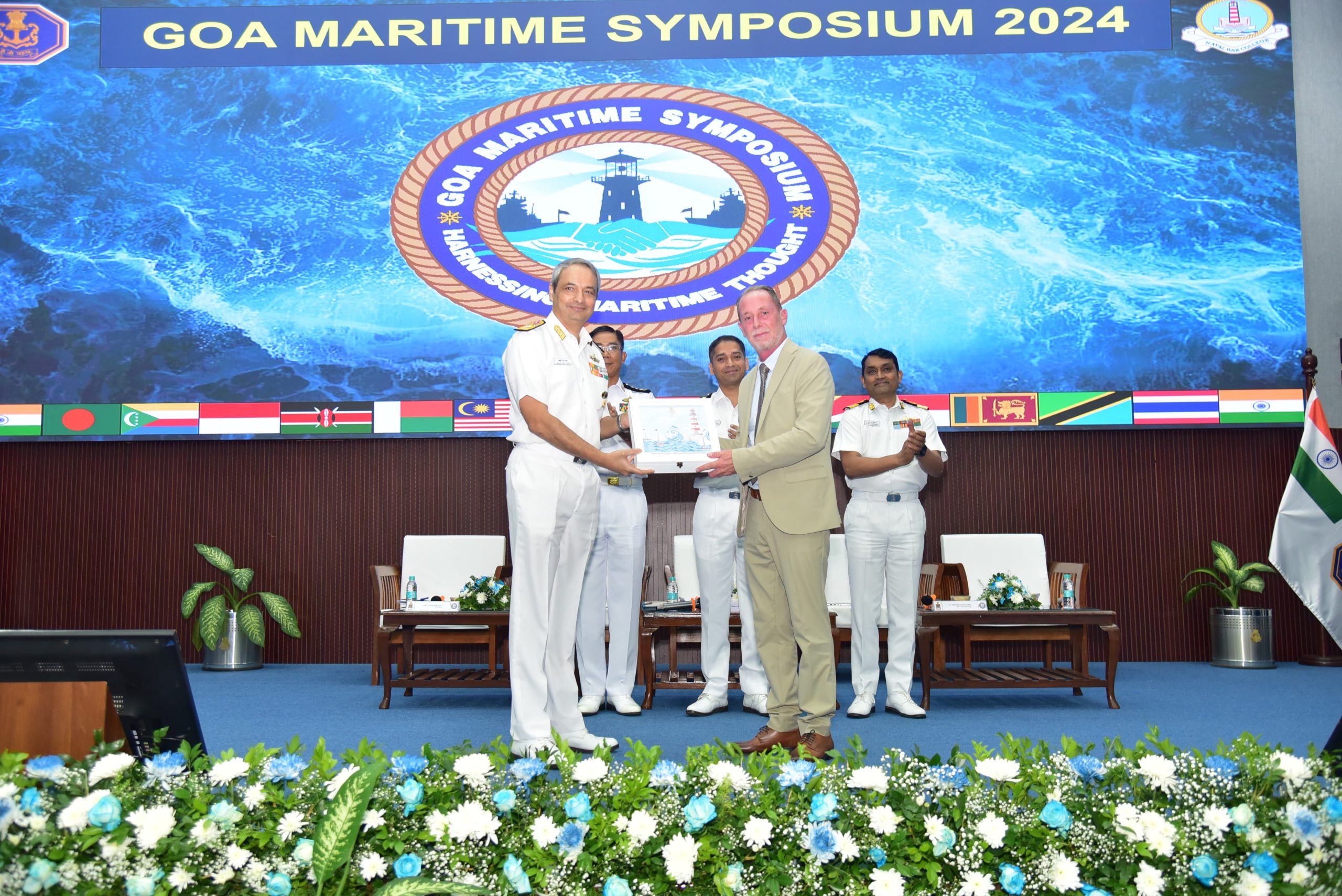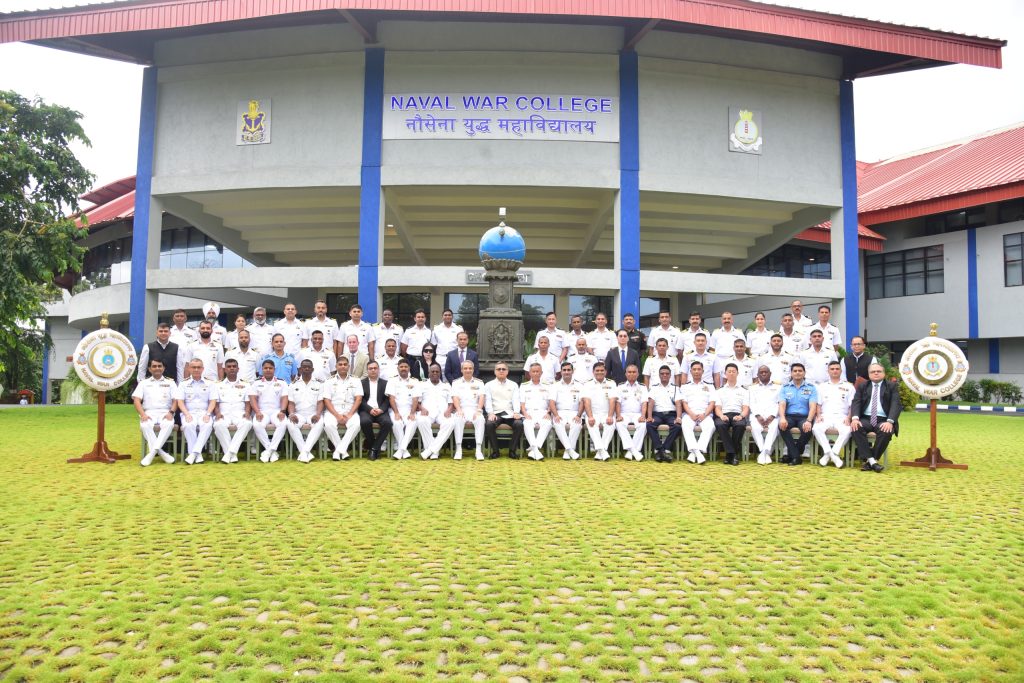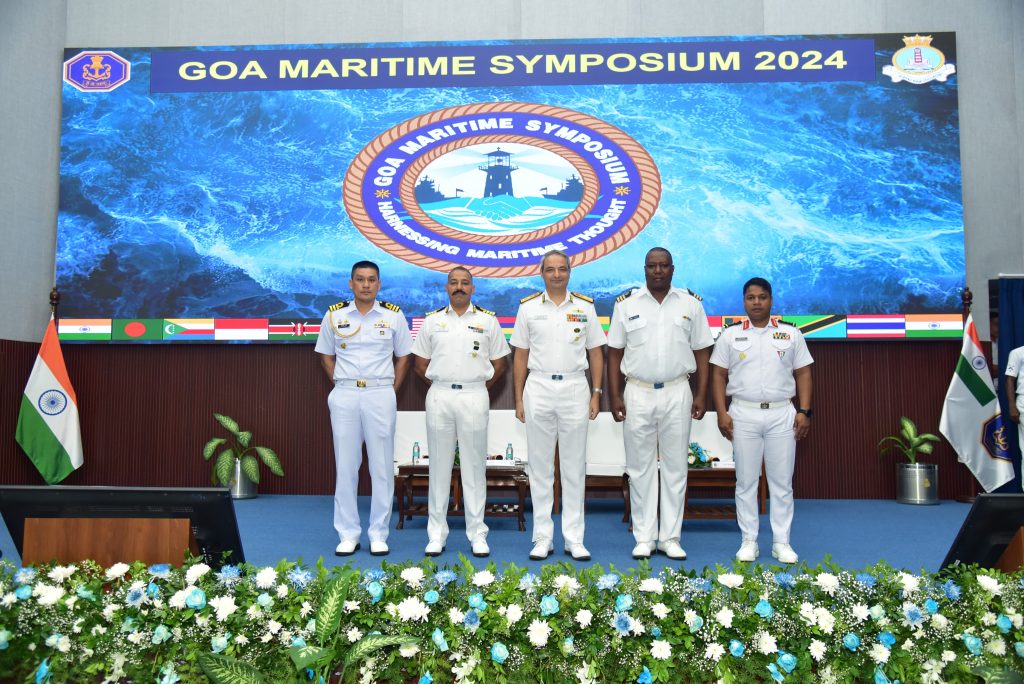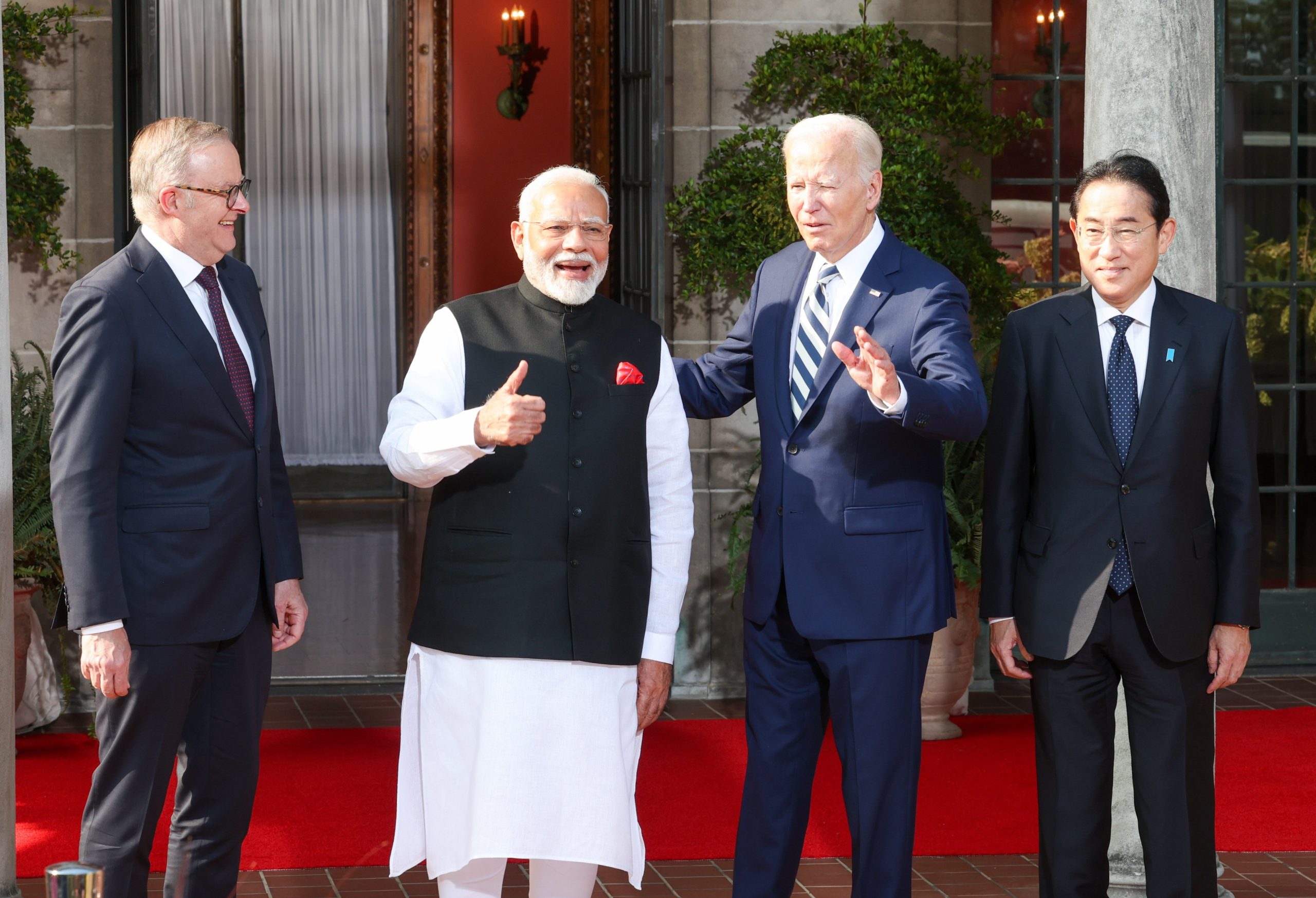The fifth edition of the Goa Maritime Symposium (GMS) 2024, organized by the Indian Navy from September 23-24, 2024, provided a pivotal platform for key regional stakeholders to tackle emerging maritime security challenges in the Indian Ocean Region (IOR). Hosted at the newly inaugurated Chola building of the Naval War College in Goa, this edition of the symposium brought together naval and maritime representatives from 13 IOR nations, including Bangladesh, Indonesia, Madagascar, and Kenya, to deliberate on collective strategies for dealing with non-traditional threats in the maritime domain.
Themed ‘Common Maritime Security Challenges in the IOR – Progressing Lines of Effort to Mitigate Dynamic Threats such as IUU Fishing and Other Illegal Maritime Activities’, the symposium reflected India’s vision of Security and Growth for All in the Region (SAGAR), a guiding principle in its maritime strategy. This theme underscored the urgency of enhancing maritime cooperation and developing regional mechanisms to address threats such as Illegal, Unreported, and Unregulated (IUU) Fishing, piracy, and other transnational crimes that jeopardize the security and economic stability of IOR nations.
Enhancing Regional Cooperation and Addressing Non-Traditional Threats
The GMS 2024 emphasized collaborative information-sharing and operational coordination among IOR nations. Delegates, including officers of Captain/Commander rank from participating countries, engaged in discussions to bolster cooperation on addressing the growing non-traditional maritime threats.
Key takeaways included:
- IUU Fishing: IUU Fishing was highlighted as a critical issue, particularly given its negative impact on local economies, food security, and sustainable marine ecosystems. Delegates discussed the importance of maritime domain awareness (MDA) and the need for coordinated regional action to combat illegal fishing practices.
- Piracy and Smuggling: These persistent maritime threats were addressed with a focus on improving cross-border intelligence-sharing and joint naval operations to safeguard shipping lanes in the Indian Ocean.
- Environmental Concerns: As climate change exacerbates environmental degradation in the IOR, there was emphasis on protecting maritime resources and developing frameworks to mitigate the impact of rising sea levels, pollution, and severe weather patterns on regional maritime activities.
- Technology and Innovation: Delegates underscored the importance of harnessing advanced technologies such as satellite-based MDA systems, Artificial Intelligence (AI), and drone surveillance to improve situational awareness and maritime security efforts.
India’s Leadership and Vision for Maritime Security
The symposium also demonstrated India’s leadership role in fostering maritime cooperation in the IOR. Indian naval officers and dignitaries highlighted the Naval War College as a center for maritime strategy and regional cooperation. As part of its SAGAR vision, India has sought to position itself as a key player in ensuring stability, security, and economic growth in the IOR through robust maritime partnerships.
Speaking at the event, senior Indian naval officers reaffirmed India’s commitment to developing stronger regional mechanisms to address the evolving threats in the maritime domain. With the Goa Maritime Symposium serving as a crucial forum for dialogue, the discussions are expected to inform the Goa Maritime Conclave in 2025, a major event aimed at further consolidating regional efforts towards shared security objectives.
Looking Ahead: Feeder for Goa Maritime Conclave 2025
The insights and recommendations from the GMS 2024 will act as a feeder for the Goa Maritime Conclave 2025, another flagship initiative by the Indian Navy to foster dialogue and strategic collaboration among Indian Ocean states. The symposium underscored the need for a cohesive regional response to maritime security challenges and set the stage for continued cooperation in the years ahead.
With its strategic location in the Indian Ocean, India remains committed to being a net security provider in the region, promoting shared prosperity, and enhancing the maritime capabilities of its regional partners. Through platforms like the GMS, India continues to drive efforts that ensure security and growth for all in the Indian Ocean Region.
The Role of Maritime Security in Sustainable Development
Maritime security has far-reaching implications, not only for defense but also for the sustainable development of the region. Ensuring the security of sea lanes, protecting marine biodiversity, and preventing illegal activities are crucial for the long-term sustainability of IOR economies. The symposium thus also focused on integrating sustainable practices into maritime security frameworks, emphasizing the need for environmentally sound and economically viable solutions to maritime threats.
As the Goa Maritime Symposium 2024 came to a close, it left behind a strengthened resolve among regional players to work in unison, sharing intelligence, technology, and strategies to address the growing spectrum of maritime challenges. The discussions initiated at GMS 2024 are expected to lay the groundwork for the next chapter in regional maritime cooperation, to be further discussed and formalized at the Goa Maritime Conclave 2025.
The Indian Navy’s commitment to advancing regional security through initiatives like the GMS underscores India’s pivotal role in shaping the future of maritime cooperation in the IOR, ensuring that the seas remain safe, secure, and sustainable for generations to come.
Kishor Biswas, Goa based Environmental Artist, Maritime Expert and Consultant expressed, “The Goa Maritime Symposium serves as a crucial platform for fostering regional security in the Indian Ocean Region. With growing maritime challenges, such as illegal fishing and smuggling, countries in this region must collaborate to develop stronger, more dynamic strategies for safeguarding their waters. Information-sharing and joint operations will play a pivotal role in tackling non-traditional maritime threats.”
Harpal Naol, Goa based Environmental Artist and Advocate for Marine Conservation stated, “Maritime security extends beyond safeguarding our shores — it’s about protecting the marine ecosystems that are vital to our planet’s health. The issue of illegal, unreported, and unregulated fishing is one of the greatest threats to marine biodiversity, and addressing these challenges through forums like the Goa Maritime Symposium is a step in the right direction. But they must also safeguard the local fisherman livelihood by extending support for learning technology advancement. Environmental preservation must be integrated into all maritime security initiatives to ensure that we are not just protecting borders, but also nurturing life below the waves.”






